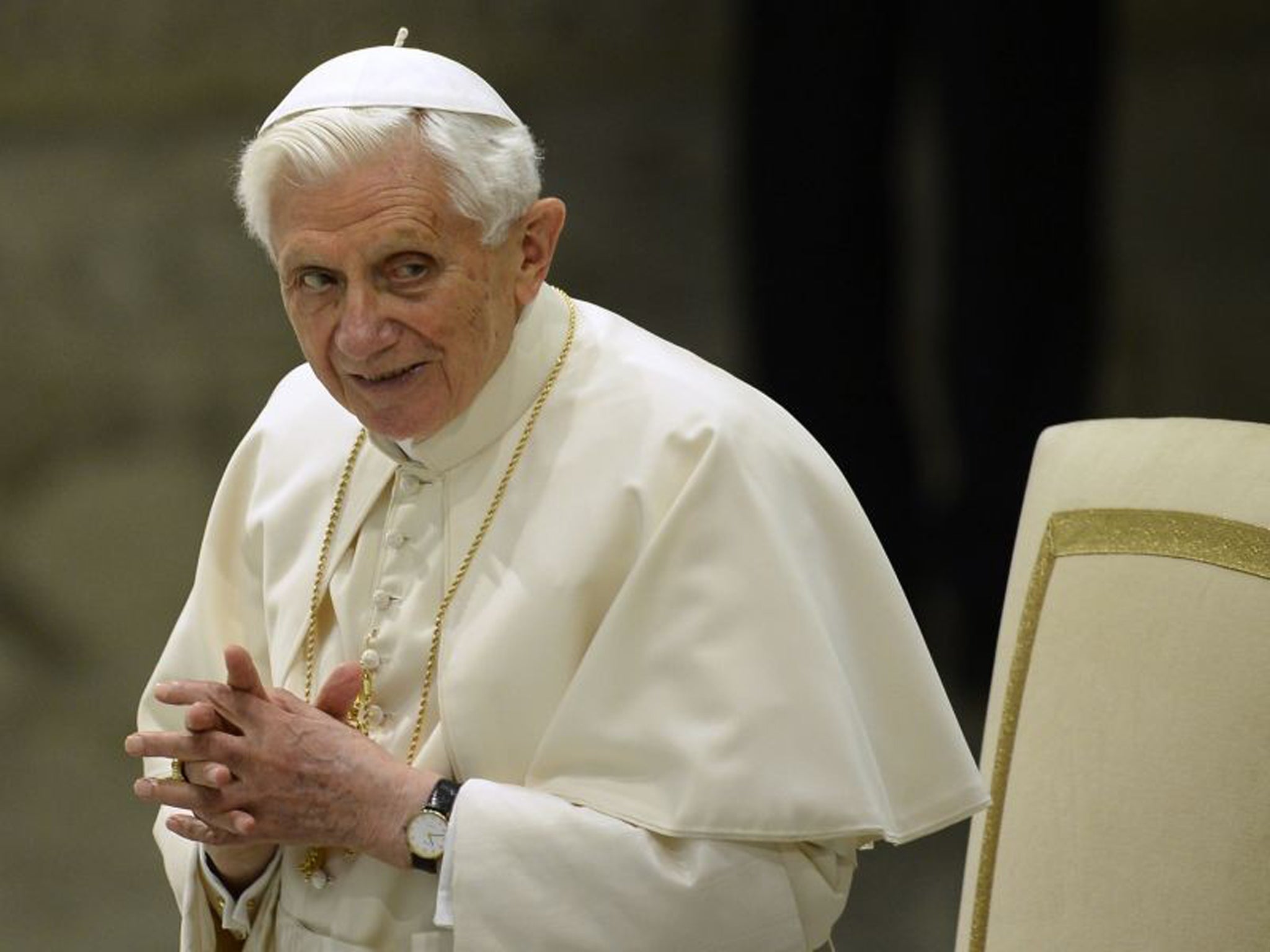Pope Benedict breaks seven-month silence to deny covering up abuse by paedophile priests, and to denounce Richard Dawkins' work as 'science fiction'
The emeritus pope made the comments in a letter to prominent mathematician and atheist Piergiorgio Odifreddi

Your support helps us to tell the story
From reproductive rights to climate change to Big Tech, The Independent is on the ground when the story is developing. Whether it's investigating the financials of Elon Musk's pro-Trump PAC or producing our latest documentary, 'The A Word', which shines a light on the American women fighting for reproductive rights, we know how important it is to parse out the facts from the messaging.
At such a critical moment in US history, we need reporters on the ground. Your donation allows us to keep sending journalists to speak to both sides of the story.
The Independent is trusted by Americans across the entire political spectrum. And unlike many other quality news outlets, we choose not to lock Americans out of our reporting and analysis with paywalls. We believe quality journalism should be available to everyone, paid for by those who can afford it.
Your support makes all the difference.Emeritus Pope Benedict has broken a seven-month silence to deny covering up the “filth” of sexual abuse by Catholic priests, and to denounce the work of Richard Dawkins as “science fiction”.
Benedict XVI, who retired as pope earlier this year, made the comments in a letter to prominent mathematician and atheist Piergiorgio Odifreddi – extracts of which have been published in Italy’s La Repubblica newspaper.
In the letter, which forms the first public work by Benedict since his retirement, and the first time he has ever denied personal responsibility for the paedophile priest scandal, the ex-pope wrote that he had “never tried to cover these things up”.
For close to 25 years the former Cardinal Joseph Ratzinger headed a Vatican office responsible for handling allegations of abuse in the Catholic Church – a department now criticised for allegedly turning a blind eye to the activities of paedophile priests.
Ratzinger was prefect when allegations of sexual abuse by priests first emerged in the US in 2002, and had become Pope Benedict XVI by the time it turned into an international scandal in 2010.
In his original, wide-ranging, 11-page letter, Benedict wrote: “That the power of evil penetrated so far into the interior world of the faith is a suffering that we must bear, but at the same time, we must do everything to prevent it from repeating”.
He added: “Neither is it comforting to know that, according to research, the percentage of priests who commit these crimes isn't any higher than the percentage of other similar professions... Regardless, one shouldn't present this deviation as if it were something specific to Catholicism.”
Elsewhere in the letter the 86-year-old discusses atheism, apparently poking fun at Odifreddi’s previous statements and condemning Richard Dawkins’ writing as a “classic example of science fiction”.
In response to Odifreddi’s 2009 declaration that the church preaches conjecture, not facts, and is therefore “science fiction”, Benedict said: “There is, moreover, science fiction in a big way just even within the theory of evolution. The Selfish Gene by Richard Dawkins is a classic example of science fiction.”
He added: “The great Jacques Monod wrote the sentences that he has inserted in his work certainly just as science fiction. I quote: ‘The emergence of tetrapod vertebrates … draws its origin from the fact that a primitive fish’ chose ‘to go and explore the land, on which, however, was unable to move except jumping clumsily and thus creating, as a result of a modification of behaviour, the selective pressure due to which would have developed the sturdy limbs of tetrapods’”.
Benedict concludes the letter by thanking Odifreddi for the “honest” way he confronted the former pope’s faith in his 2011 book ‘Dear Pope, I’m Writing to You…’, but points out “a certain aggressiveness” and “rashness” in his views.
Benedict also expresses surprise that Odifreddi had considered his own writing on Jesus to be worthy of a detailed discussion, given that the academic had previously expressly stated that he considered Christianity “science fiction”.
Join our commenting forum
Join thought-provoking conversations, follow other Independent readers and see their replies
Comments